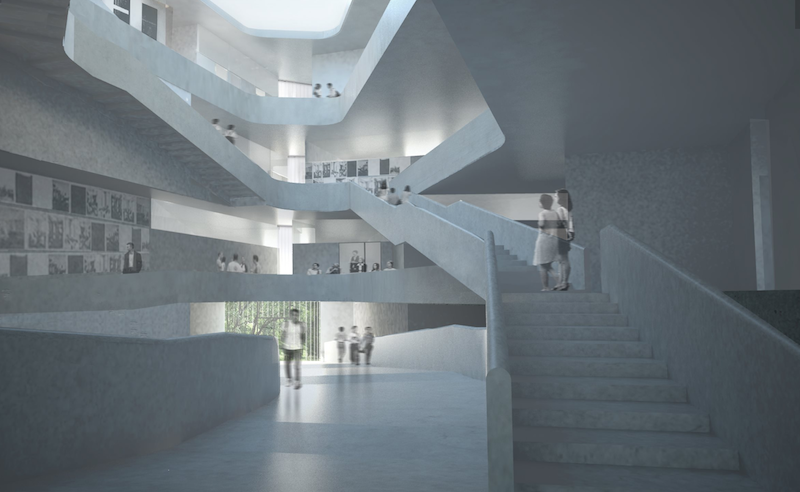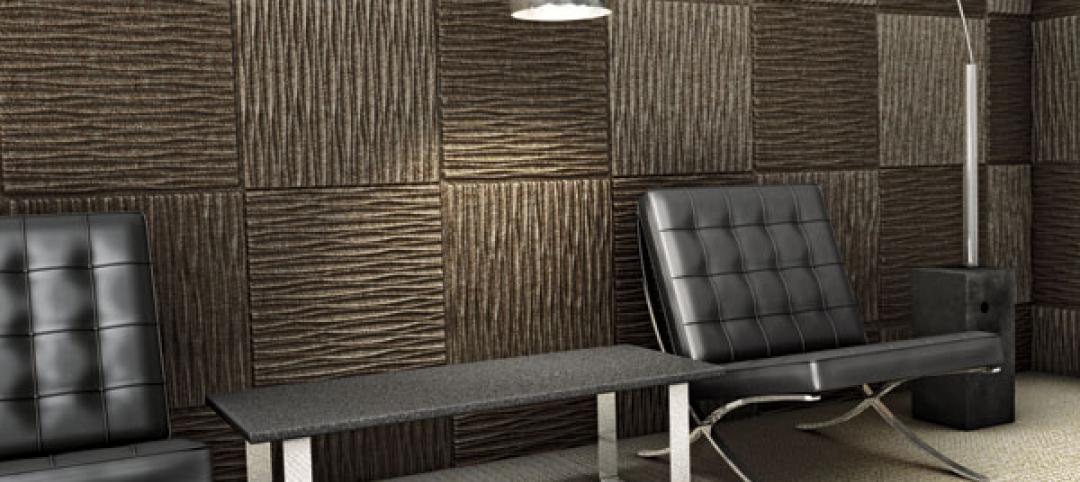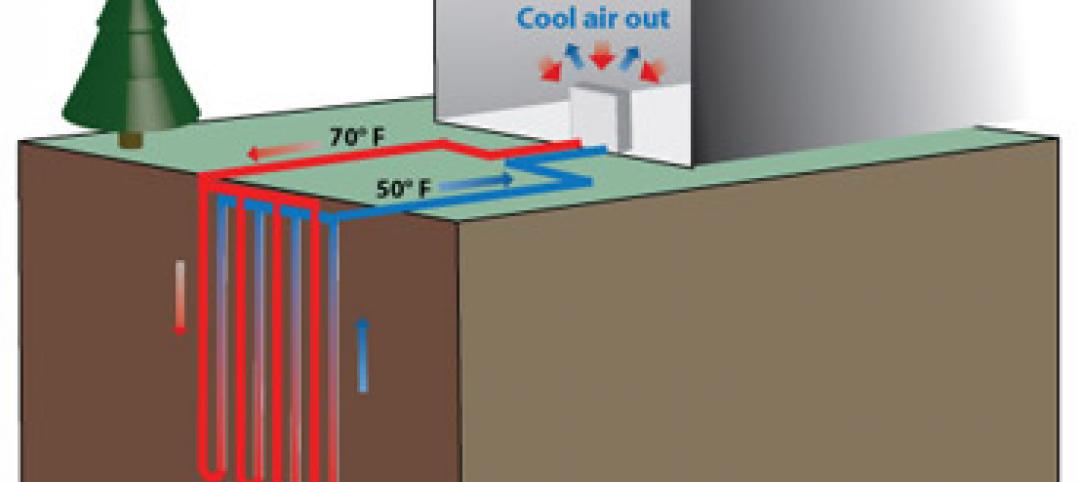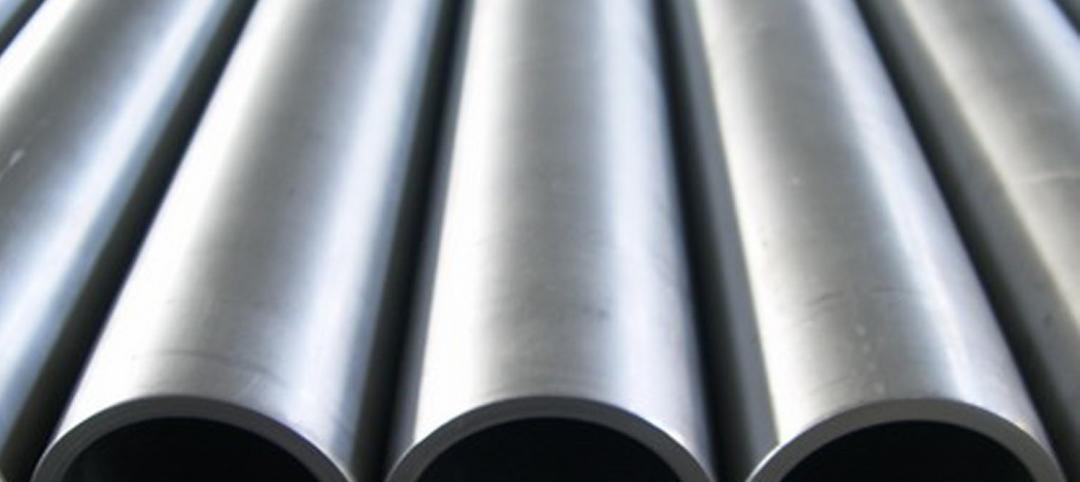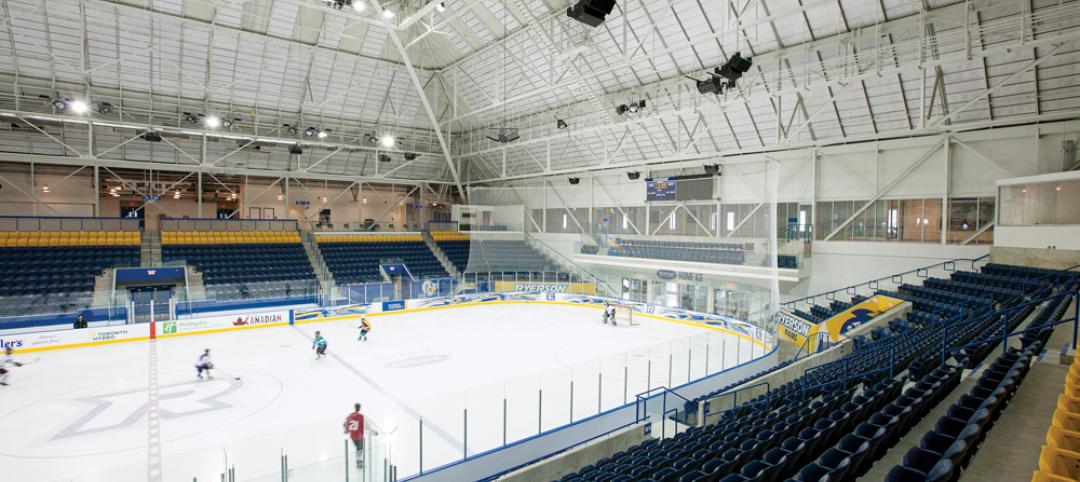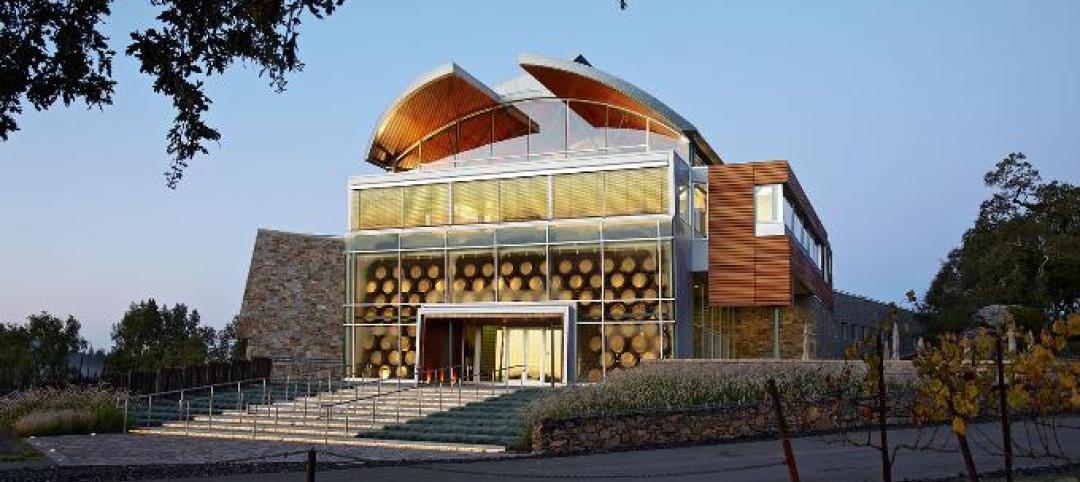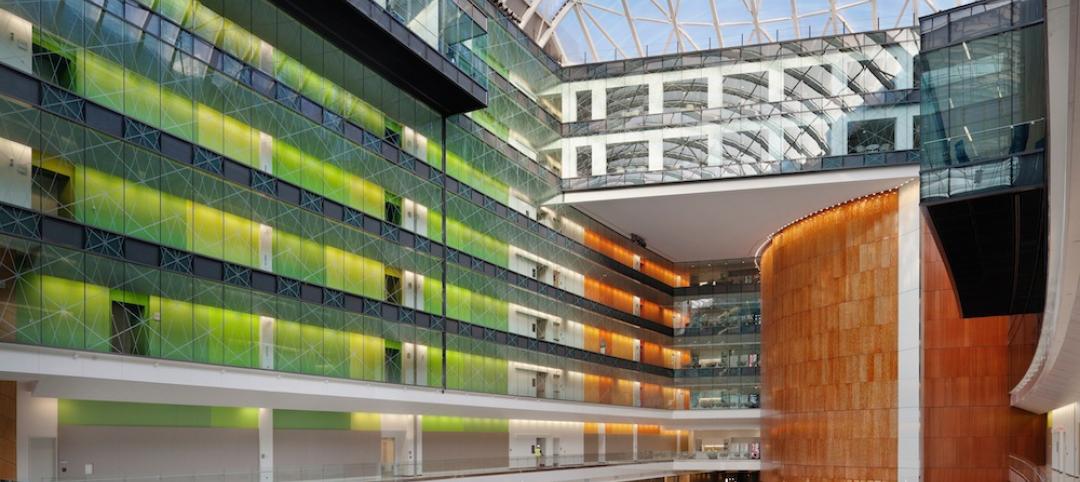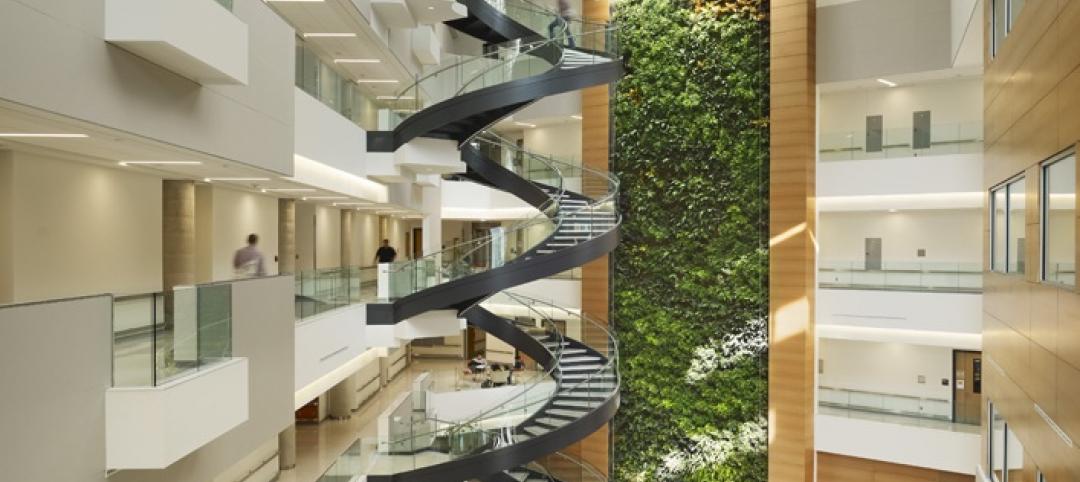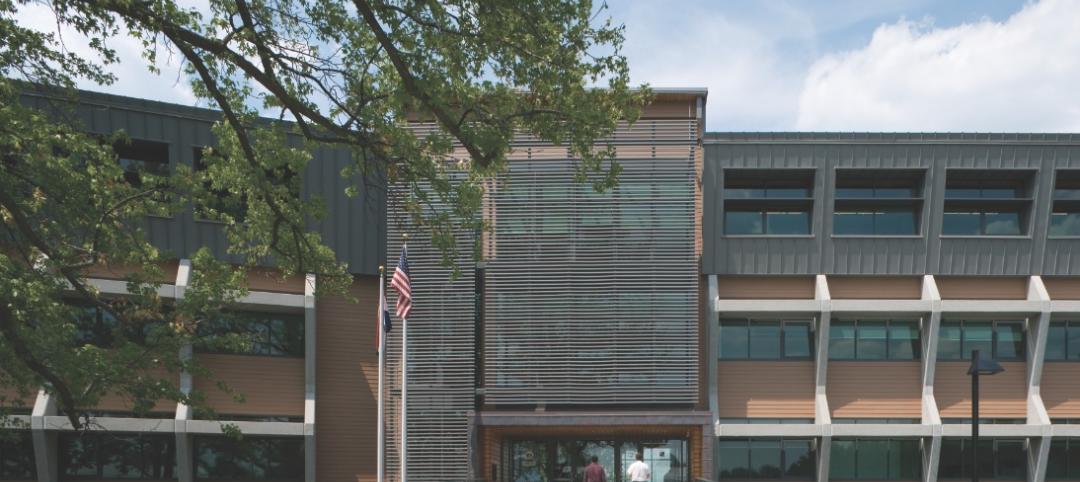The University of Iowa’s new Visual Arts Building is a 126,000-sf facility that will house the functions of the School of Art & Art history, which were previously held in the university’s 1936 Art Building. The new building provides a space for ceramics, sculpture, metals, photography, printmaking, 3D design, intermedia, animation, and graphic design. There is also space for graduate student studies, faculty and staff studios and offices, and gallery space.
The Visual Arts Building uses a punched concrete frame structure composed of cast-in-place concrete to provide thermal mass at the exterior of the building. Meanwhile, “bubble” slabs that incorporate the Cobiax bubble deck system provide radiant cooling and heating.
BNIM, which worked in collaboration with Steven Holl Architects, designed the irregular shape of the building through the use of computer modeling software. This same software was also used to coordinate the installation of the exposed mechanical pipes and ductwork, which proved to be a complex task.
Significant daylighting, natural ventilation at the atrium skylight, thermal mass storage, a thermal active slab heating and cooling system, and highly efficient HVAC systems are key components of the design.
These design components work toward the ultimate goal of the building, which is to provide as much connection and communication between departments as possible. A key aspect of this is the vertical carving out of large open floor plates. Additionally, several vertical cutouts are designed to increase the interaction between the facility’s four levels. The stairs have also been shaped to increase interaction and discussion among the building’s users. Some of the sculptural open stairs stop at large landings with tables and chairs while others open into lounge spaces with built in seating.
The Visual Arts Building officially opened on Oct. 7.
Related Stories
| Nov 15, 2013
Metal makes its mark on interior spaces
Beyond its long-standing role as a preferred material for a building’s structure and roof, metal is making its mark on interior spaces as well.
| Nov 13, 2013
Installed capacity of geothermal heat pumps to grow by 150% by 2020, says study
The worldwide installed capacity of GHP systems will reach 127.4 gigawatts-thermal over the next seven years, growth of nearly 150%, according to a recent report from Navigant Research.
| Oct 30, 2013
15 stellar historic preservation, adaptive reuse, and renovation projects
The winners of the 2013 Reconstruction Awards showcase the best work of distinguished Building Teams, encompassing historic preservation, adaptive reuse, and renovations and additions.
| Oct 30, 2013
11 hot BIM/VDC topics for 2013
If you like to geek out on building information modeling and virtual design and construction, you should enjoy this overview of the top BIM/VDC topics.
| Oct 18, 2013
Researchers discover tension-fusing properties of metal
When a group of MIT researchers recently discovered that stress can cause metal alloy to fuse rather than break apart, they assumed it must be a mistake. It wasn't. The surprising finding could lead to self-healing materials that repair early damage before it has a chance to spread.
| Oct 8, 2013
Toronto Maple Leafs arena converted to university recreation facility
Using steel reinforcement and massive box trusses, a Building Team methodically inserts four new floors in the landmark arena while preserving and restoring its historic exterior.
| Oct 7, 2013
10 award-winning metal building projects
The FDNY Fireboat Firehouse in New York and the Cirrus Logic Building in Austin, Texas, are among nine projects named winners of the 2013 Chairman’s Award by the Metal Construction Association for outstanding design and construction.
| Oct 1, 2013
13 structural steel buildings that dazzle
The Barclays Center arena in Brooklyn and the NASCAR Hall of Fame in Charlotte, N.C., are among projects named 2013 IDEAS2 winners by the American Institute of Steel Construction.
| Sep 24, 2013
8 grand green roofs (and walls)
A dramatic interior green wall at Drexel University and a massive, 4.4-acre vegetated roof at the Kauffman Performing Arts Center in Kansas City are among the projects honored in the 2013 Green Roof and Wall Awards of Excellence.
| Sep 19, 2013
What we can learn from the world’s greenest buildings
Renowned green building author, Jerry Yudelson, offers five valuable lessons for designers, contractors, and building owners, based on a study of 55 high-performance projects from around the world.


